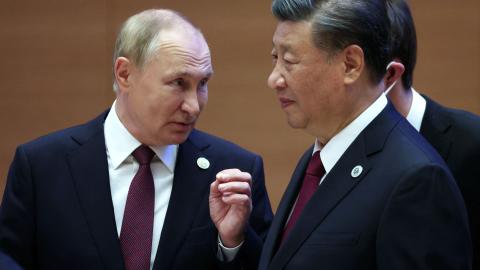Tel Aviv
I was here last week to interview Prime Minister Benjamin Netanyahu at the Tikvah Israel Security Conclave. The interview, available on the Journal’s website, combined a tour d’horizon of Mr. Netanyahu’s view of world politics with some candid reflections on the history of Zionism. As for the rest of the conference, I came away thinking that the U.S. is much closer to getting involved in another Middle East war than most in Washington understand, and that minimizing this danger requires rapid and sweeping policy change from an administration still struggling to comprehend the most serious international crisis since the late 1930s.
The Biden administration came to office with an elegant and cohesive geopolitical strategy. It would address the China challenge by driving wedges between China and its fellow revisionist powers. It would park Russia by accommodating Vladimir Putin and stabilize the Middle East by reviving the nuclear deal with Iran even as it pursued aggressive trade and security policies to limit China’s rise.

















